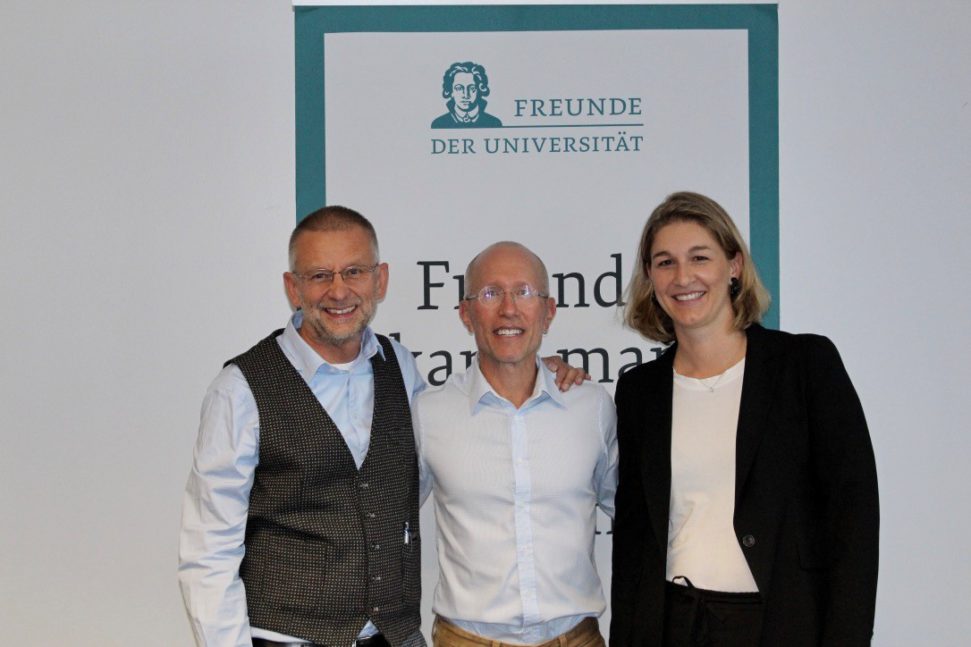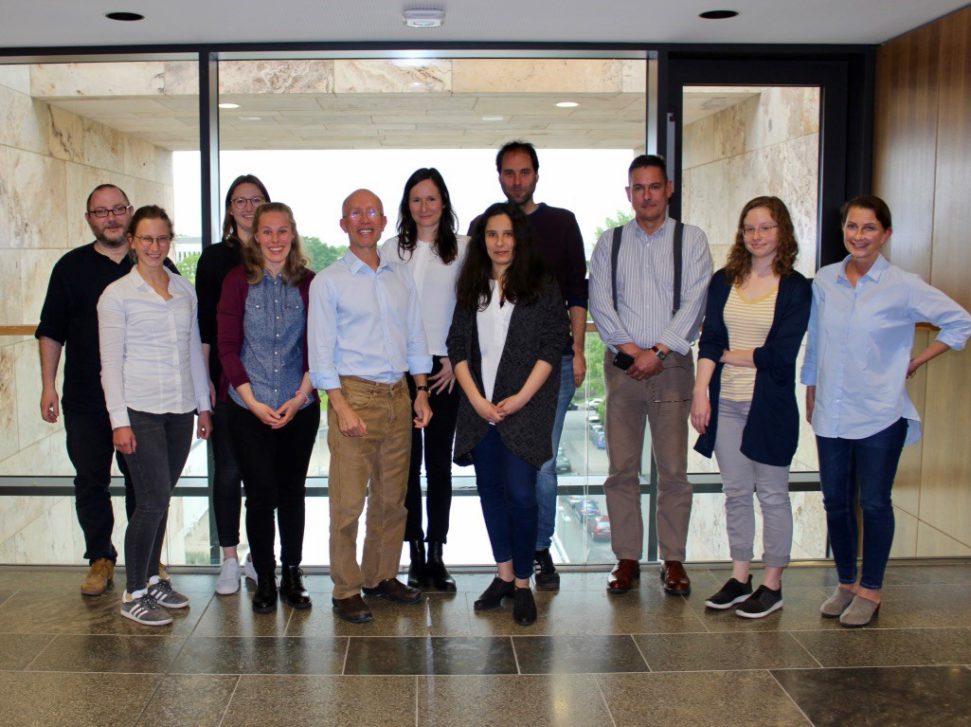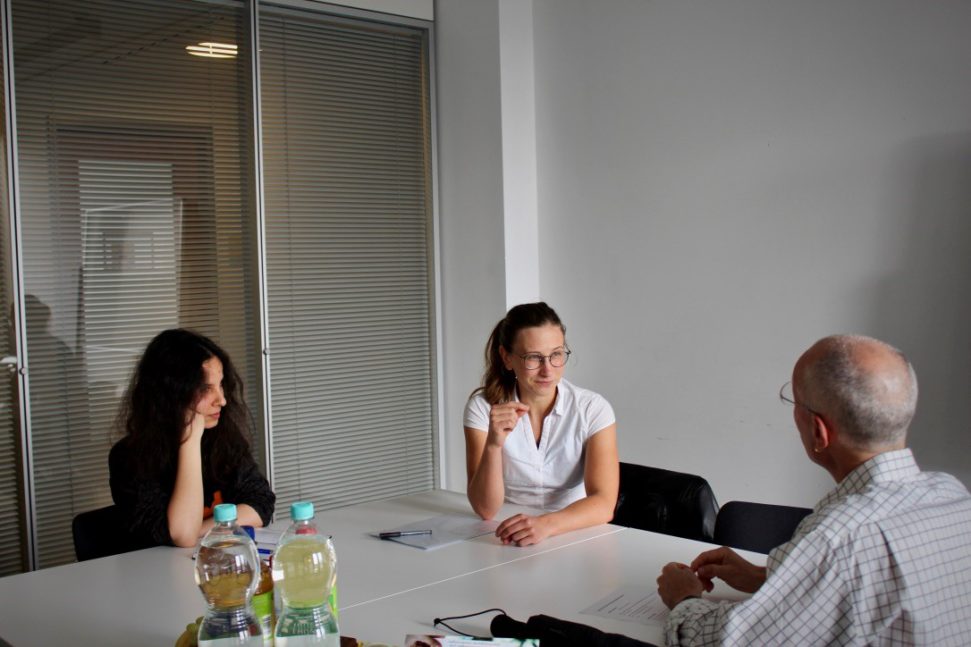Start of the lecture series “Ist die Welt schlecht? Is the world bad?”
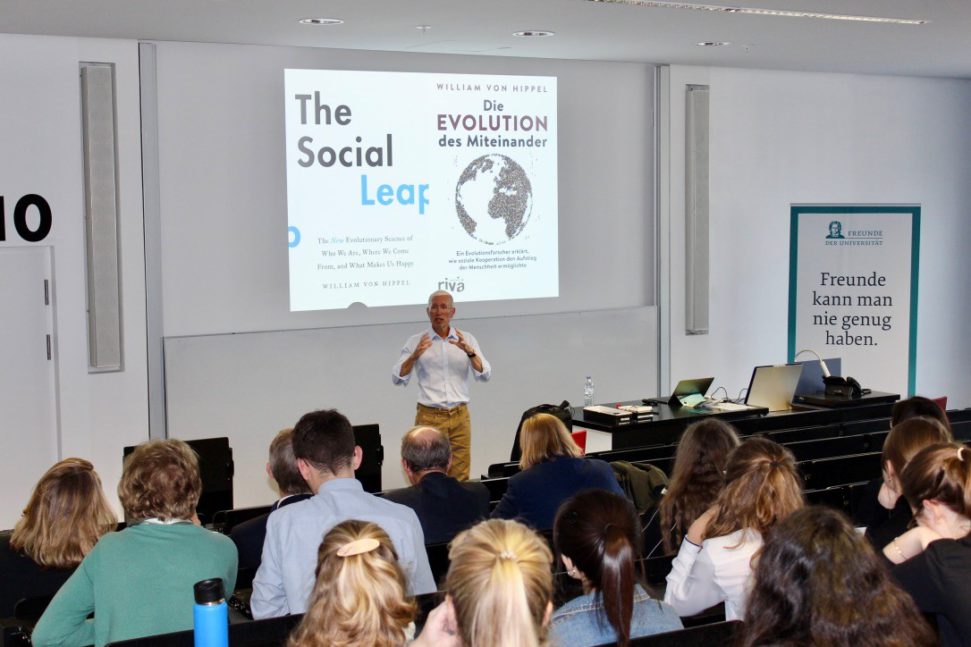
„Is the world bad?“ is the main question within the lecture series organized by Prof. Rolf van Dick with the contribution of friends and supporters of Goethe University and funded by the Grunelius Foundation. When we watch the news, read the newspaper or screen the social media, we are confronted with disasters, crises and terrorism. And this can easily lead to the impression that the world is getting worse and worse and that everything was better in the past. However, a lot has changed to the better over the past years. The aim of this lecture series is to put things into perspective and to look at the positive side and at the advancements that we have made in the past years.
The start of the lecture series was made by Prof. William von Hippel, who visited the Goethe University from May 20th to 22nd. During his permanence in Frankfurt, he gave a talk about „The social leap“, from which he offered some ideas to answer the important question: „ Is the world bad?“. Prof. William von Hippel received his PhD in social psychology at the University of Michigan. He then was an assistant and associate professorship at Ohio State University. Currently, he is Professor of Psychology at the University of Queensland in Brisbane, Australia. His research interests include evolutionary psychology, executive functioning and social competences.
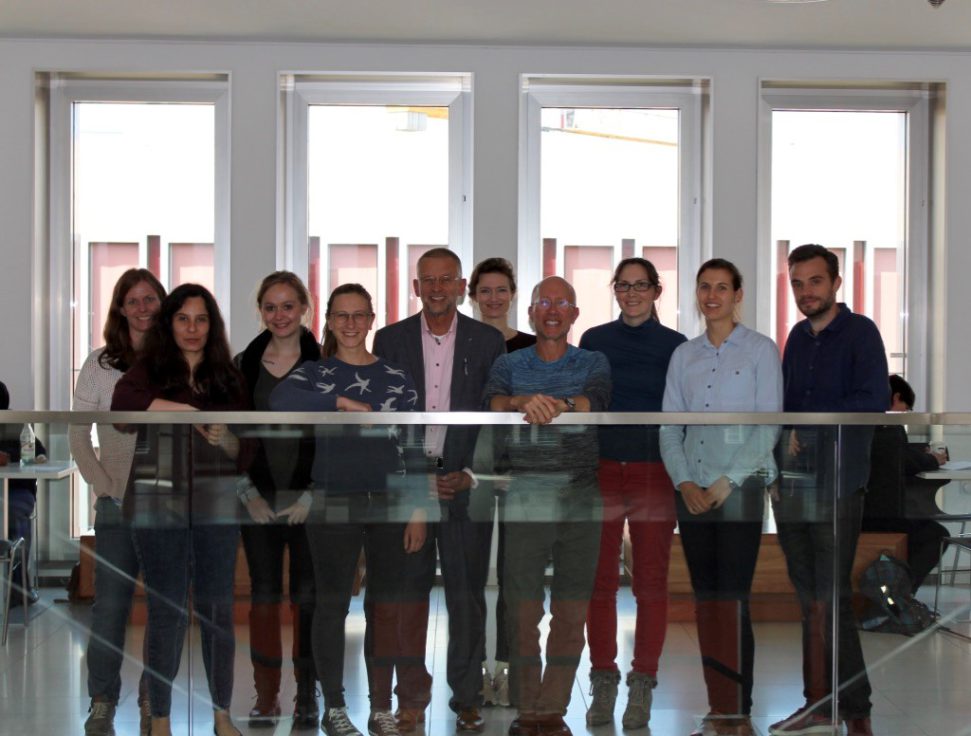
During his stay, Prof. William von Hippel met up with PhD students, postdocs and professors from different departments of the Goethe University. For example, he discussed research questions with members of the Department of Psychology, had meetings with members of the Faculty of Economics and Business Administration and exchanged ideas with members of the Department of Management and Microeconomics. Besides personal meetings, several small group meetings took place like a stimulating discussion with the interdisciplinary collaborative network “Resilience Factors in a diachronic and intercultural perspective” where researchers from archaeology, psychology and life sciences examine which factors enable individuals, smaller or larger collectives to cope with stressful situation in the past.
The highlight of his visit at the Goethe University was his talk about “The social leap”. He began his talk from the evolution of our distant ancestors that encouraged a “social leap” from the rainforest to the savannah. Indeed, they prioritized teamwork over physical competences in their struggle for survival, creating a new form of social intelligence that shaped humanity’s way from the apex predator. He then built a bridge between our evolutionary history over the last 6 million years and some of the fundamental aspects of our lives today. For example, he highlighted how cooperation and kindness make us more effective killers, indicating that this can be seen both as a threat and as an opportunity. In addition, he theorized how for example with the aid of modern medicine and knowledge about the environment, the world got cleaner and safer and people became healthier and older. He concluded his inspiring talk with possible explanations about the reasons why people are not so much happier even though the world has progressively become better.
Altogether, it was an interesting and inspiring visit and a great start for the lecture series which was made possible by the association of Goethe University’s friends and supporters and the Grunelius Foundation who supported this lecture series - without their financial support this event would not have been possible. Many contacts were made and collaborations were planned for further projects. Prof. William von Hippel concluded that he had enjoyed his stay in Frankfurt very much and that he would like to come back during his sabbatical next year.
